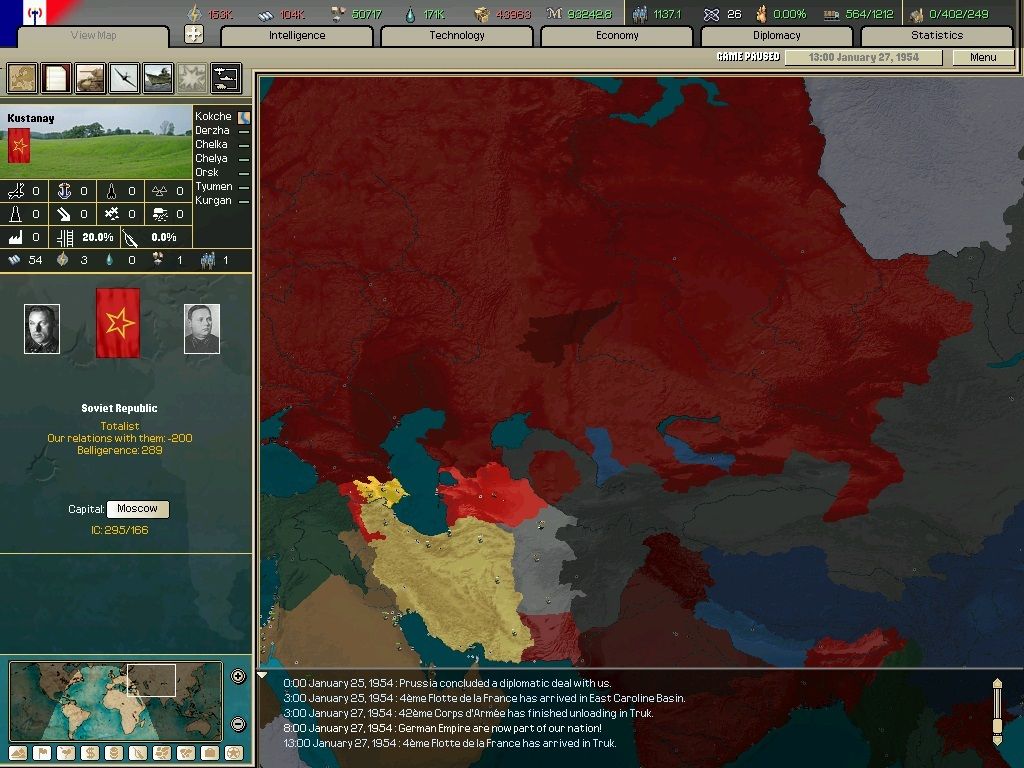The Soviet Phase of the Third Weltkrieg
The exact period covered by the Third Weltkrieg is difficult to determine as it consisted not of one, decisive conflict but rather of several interlinked conflicts following on from one another. It is generally accepted, however, that since the Soviet attack on the German Empire and allies led directly to the war between the Soviets and the alliance led by the remnants of the British Empire, these conflicts can be considered part of the Third Weltkrieg as the Soviet phase.
At the onset of Canadian entry to the Third Weltkrieg, their efforts seemed doomed to failure. By the end of April 1952 the Red Army had reached the northern borders of Persia where it halted upon finding that the French Empire was already manning the pre-war borders of Persia. The only part of the country which would come under Soviet control was a long, thin slice of Persian Kurdistan where its entry from the Caucasus had been eased by the support of pro-Soviet Kurdish militias.
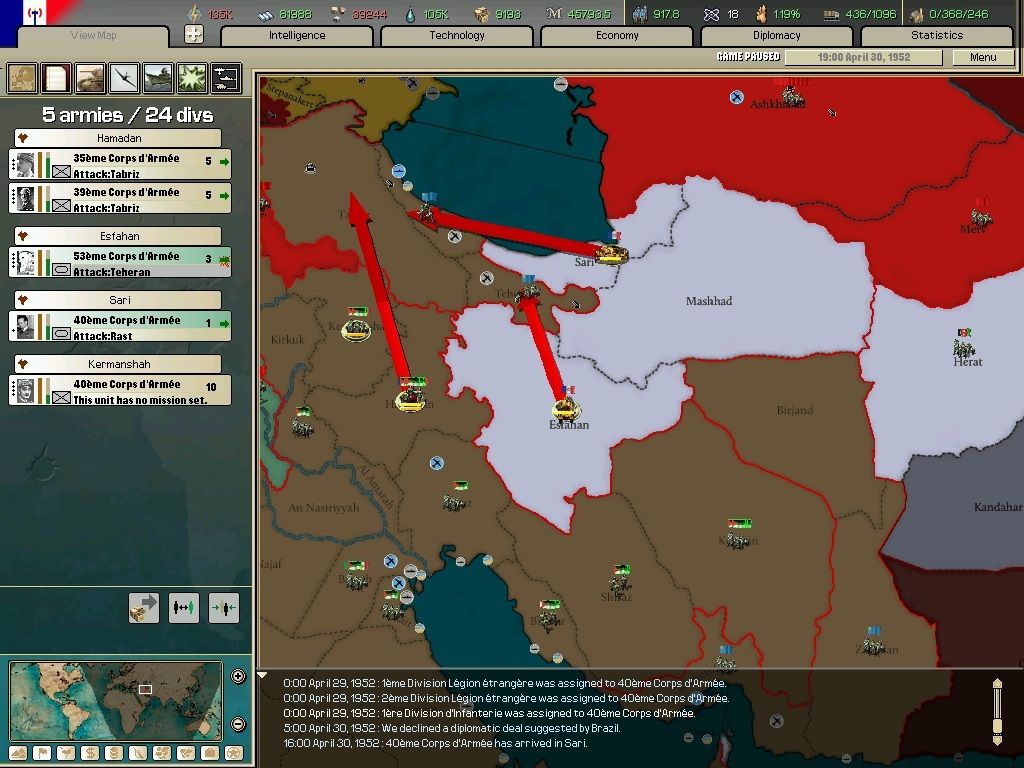
With only the inconsequential nation of Afghanistan standing between the Red Army and the weak state of Delhi (the remnants of the British Raj in India) the Soviet invasion of Afghanistan commencing on the 2nd of May surprised no one. Since even all the forces of the British Empire combined would be outnumbered by the Red Army it seemed certain that the only outcome of the Canadian declaration of war would be the fall of Delhi to the Soviets.
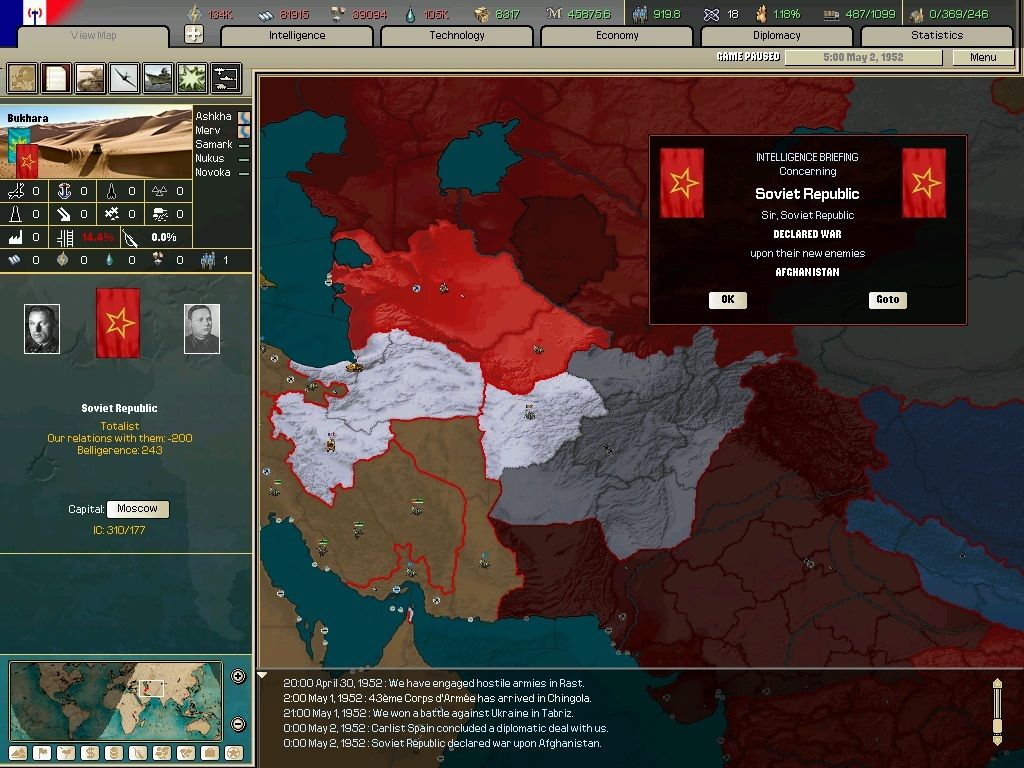
By the 12th of June, the Red Army had completely overrun Afghanistan and was massing on the borders of Delhi.
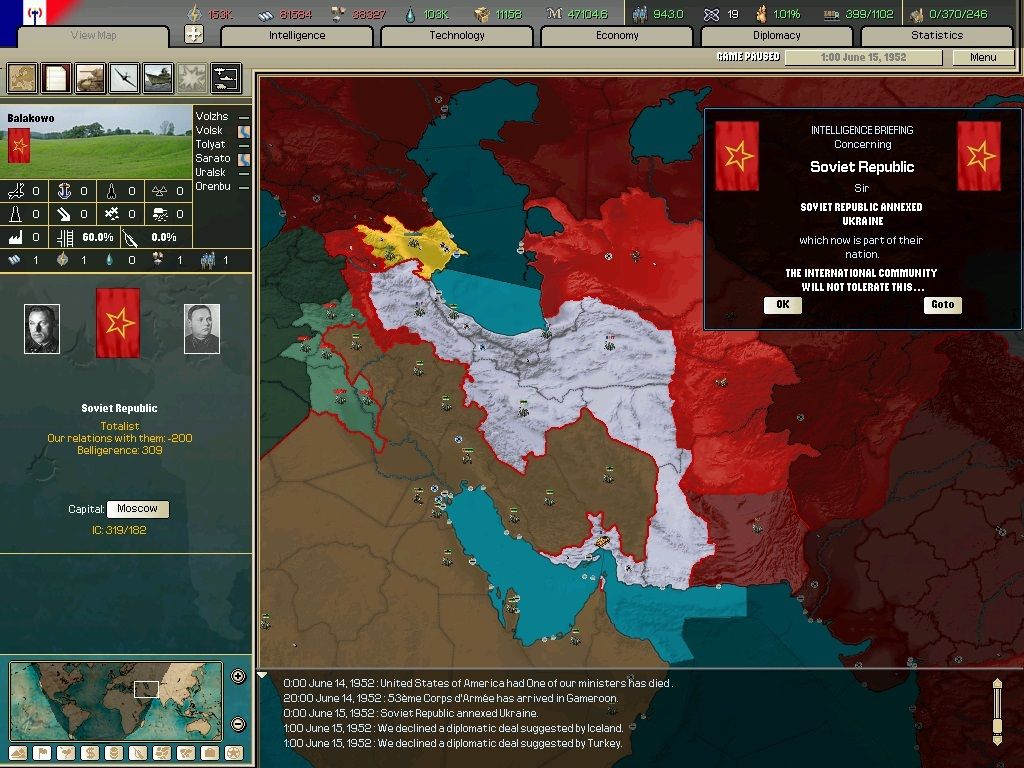
However, it was at this point that the Canadians found themselves an unlikely ally. During the First Russian Civil War a charismatic White Army officer by the name of Roman von Ungern-Sternberg had led the forces under his command into Mongolia where they defeated occupying Chinese forces and established control of the country. Whilst setting himself up as the unchallenged ruler of the small country, Ungern fell under the sway of mysticism and came to believe himself to be the reincarnation of Genghis Khan.
The remoteness and relative insignificance of Mongolia meant that, even after the victory of the whites in the First Russian Civil War, none of Ungern's neighbours chose to challenge his control of Mongolia. This in turn him to spend many years building up the Mongolian Army before taking advantage of a divided China and the Second Russian Civil War to annex vast swathes of both Siberia and China into what he termed the resurrected Mongolian Empire.
Although Ungern was undoubtedly insane and despised the democratic societies of the British Empire remnants as being "weak", he had a burning hatred of the Soviets and it was this which brought him into the Canadian camp. For on the 15th of June 1951 he stunned the world by declaring his alliance with "the King-Emperor of the British Empire".
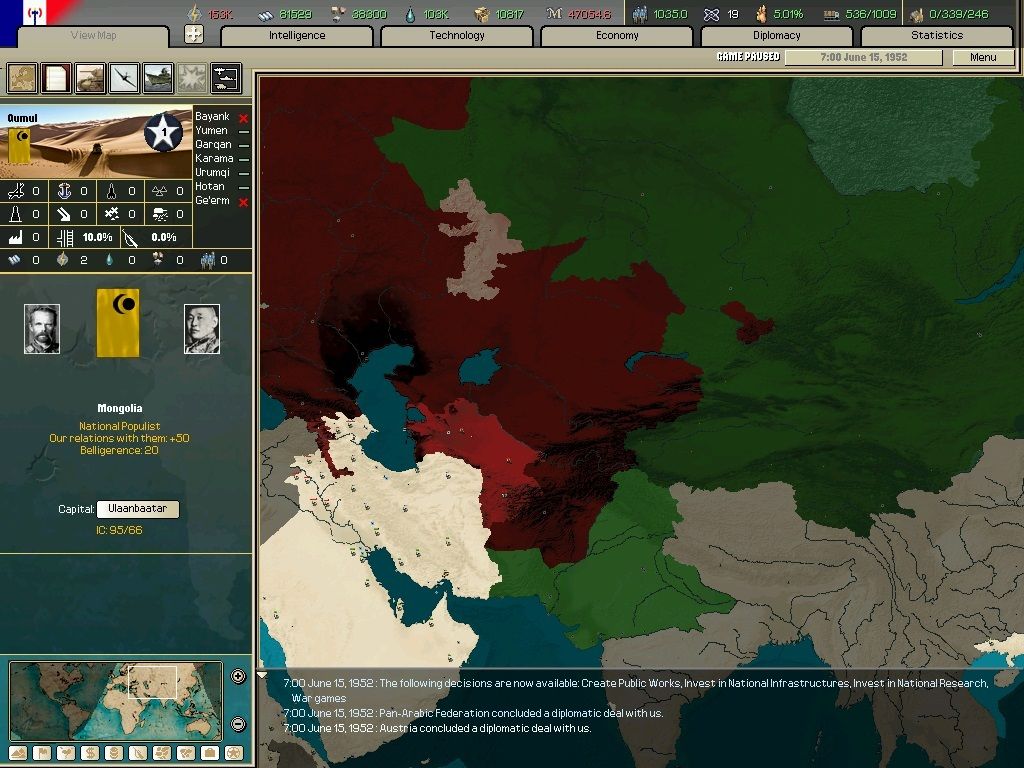
Whilst the armies of Mongolia were slow to mobilise and archaically equipped, the offensive which they mounted against the eastern border of the Soviet Republic succeeded in reaching the Urals by September and placing enough pressure on the Soviets to halt their invasion of India at the River Indus.
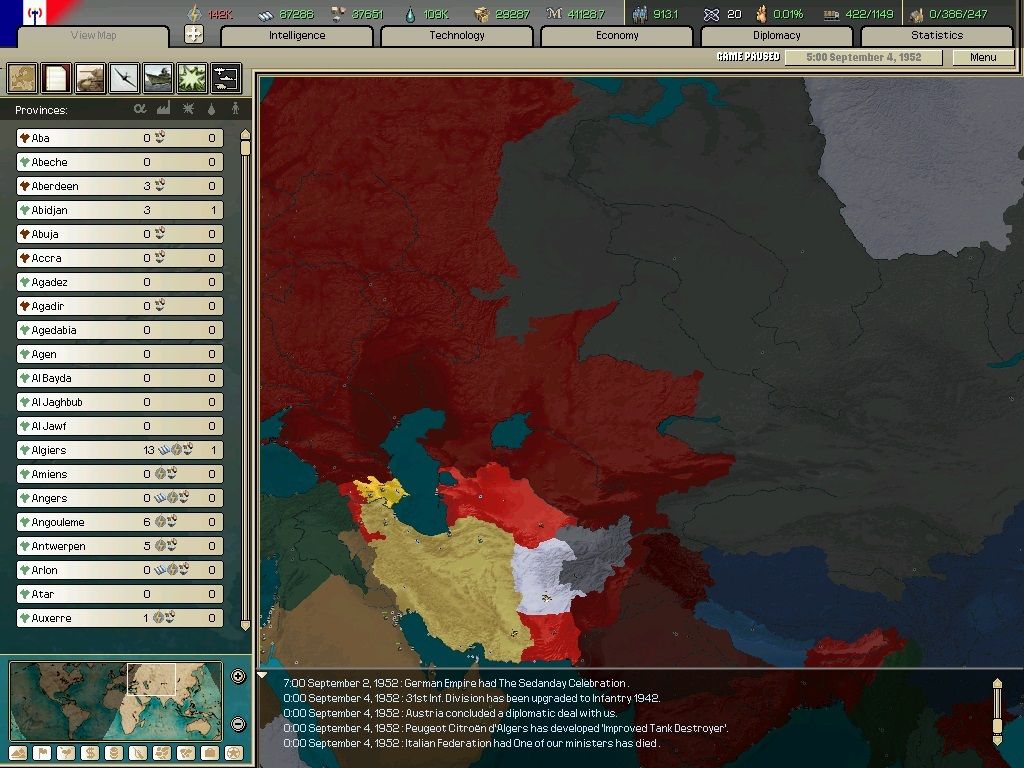
From this point, the war against the Soviets in the east became a bloody conflict marked by constant back and forth fighting where no quarter was given and both Soviets and Mongolians committed atrocities against civilian populations.
A key factor in this was the differences between the armies fighting. The Red Army was modern and partially mechanised, consisting of 94 infantry divisions and fifteen armoured divisions. It could also count on the support of the large and well equipped Red Air Force. Against it was the relatively well equipped but small sepoy army of Delhi and the 200 divisions of the vast Mongolian army of conscripts who, while utterly unmechanised and largely equipped with First Weltkrieg weaponry, was led by a hard core of mounted Mongolian cavalry who proved highly effective shock troops under Ungern who had decades of experience in fighting on the Siberian steppes.
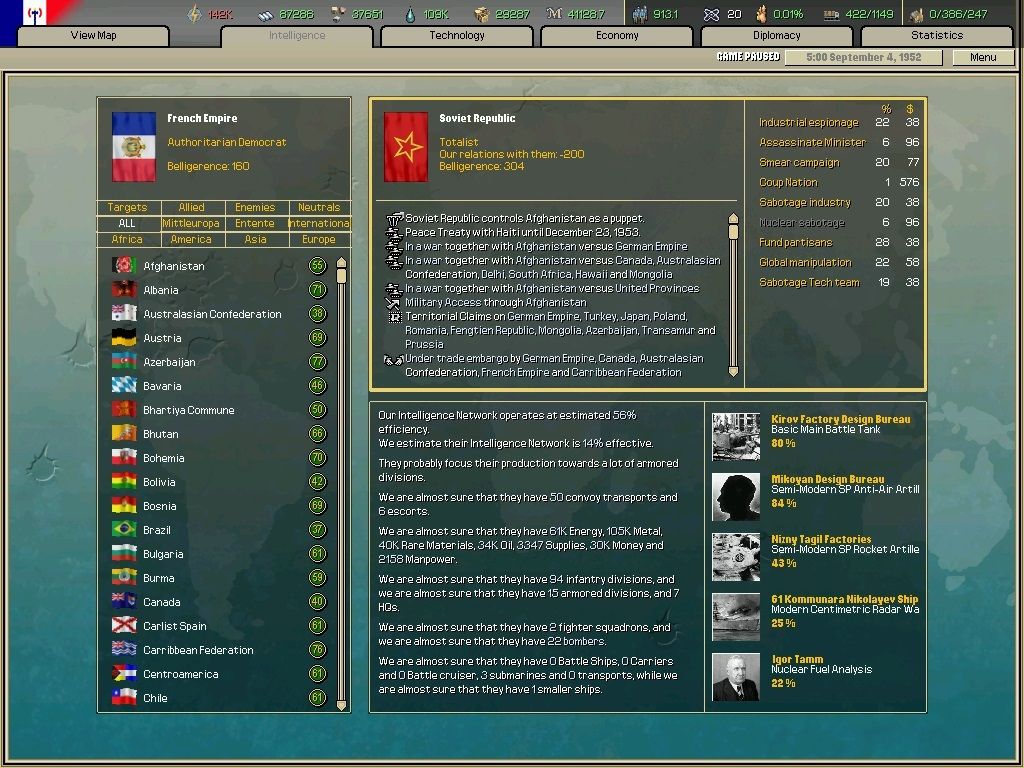
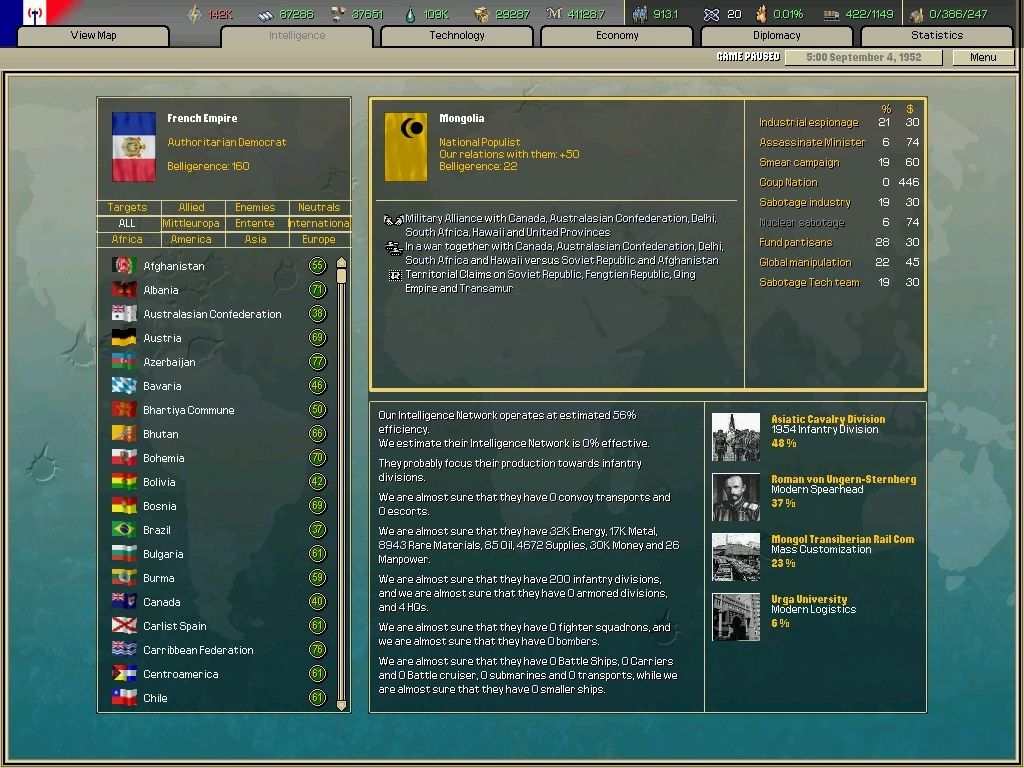
The war between these two very different forces would drag on throughout the winter seeing both Soviet advances in central Asia and Soviet retreats in India. By March 1953 the tide of war would even result in the Soviets being driven out of Afghanistan and even after months of Soviet counter offensives, August would still see the Red Army largely on the back foot.
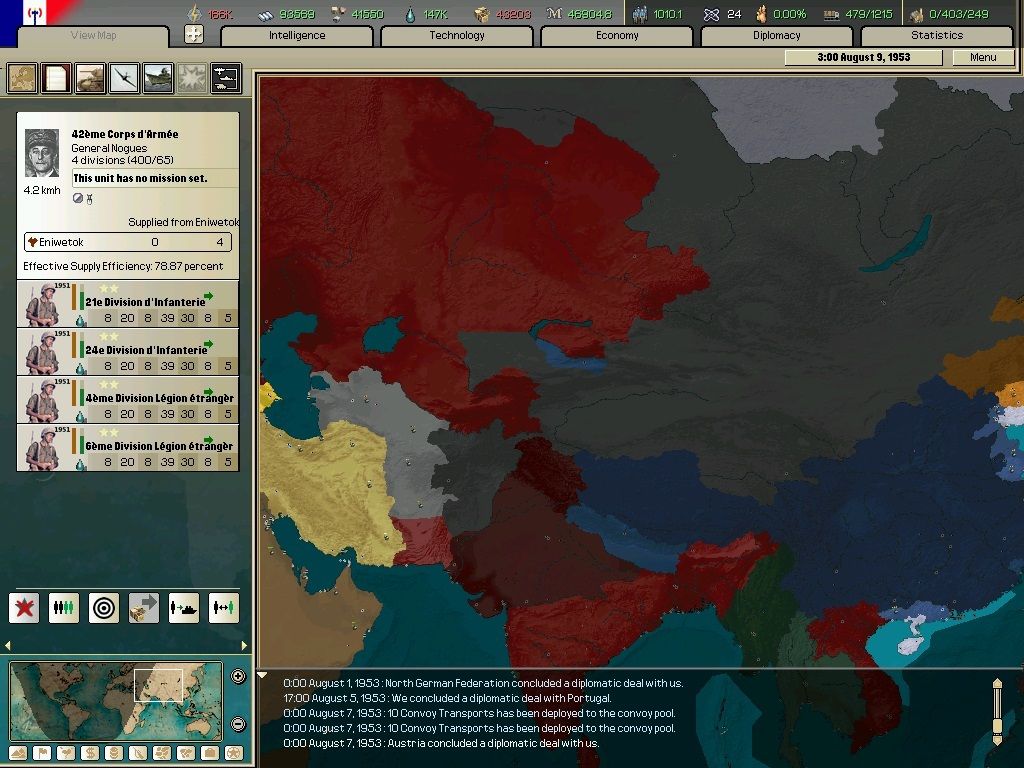
The key reason for this was a momentous strategic error by Stavka, the high command of the Soviet military, which had seen the North Sea and Baltic coasts stripped of forces to be sent to the east.
In response, the Canadians had launched an immensely ambitious July invasion of the Soviet Republic. Using Iceland as a staging post, the bulk of the Canadian army and the Royal Navy were used in amphibious landings along the coast of Norway and Lapland as well as an ultimately ill-fated seizure of the port of Archangel.
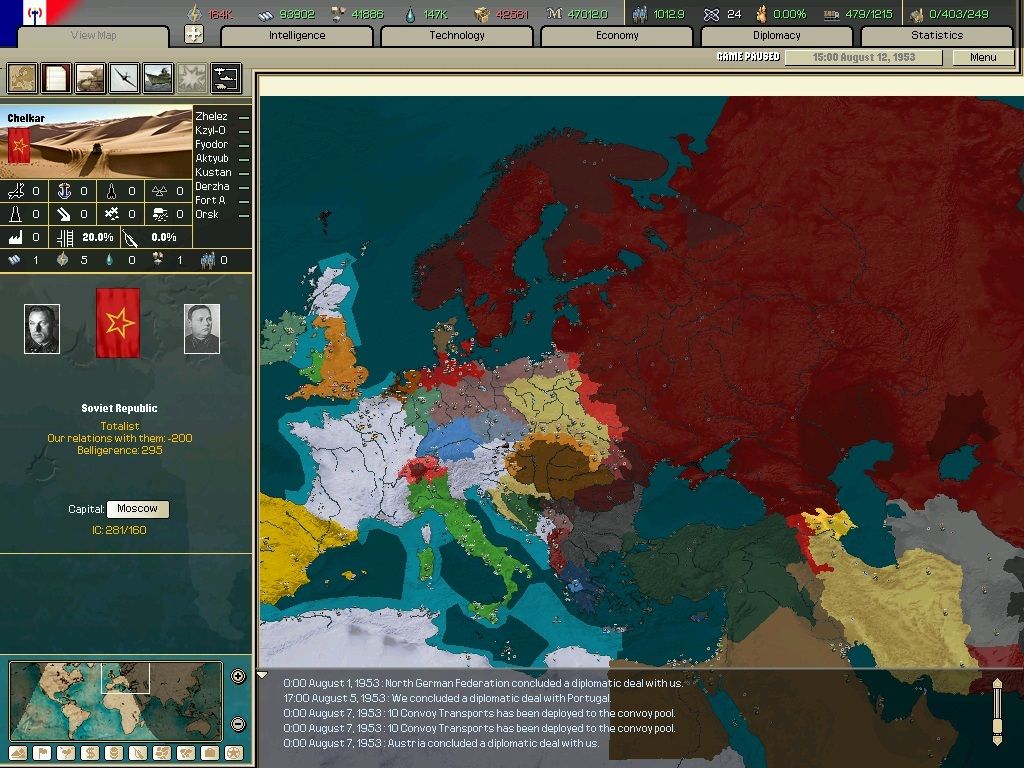
Towards the end of September the well trained and equipped Canadian forces had secured all of Norway and Sweden with the frontline stabilising in Finland. However, this had failed to relieve pressure on the eastern front enough to help their allies and the Mongolians found themselves slowly but steadily falling back in the face of Soviet offensives.
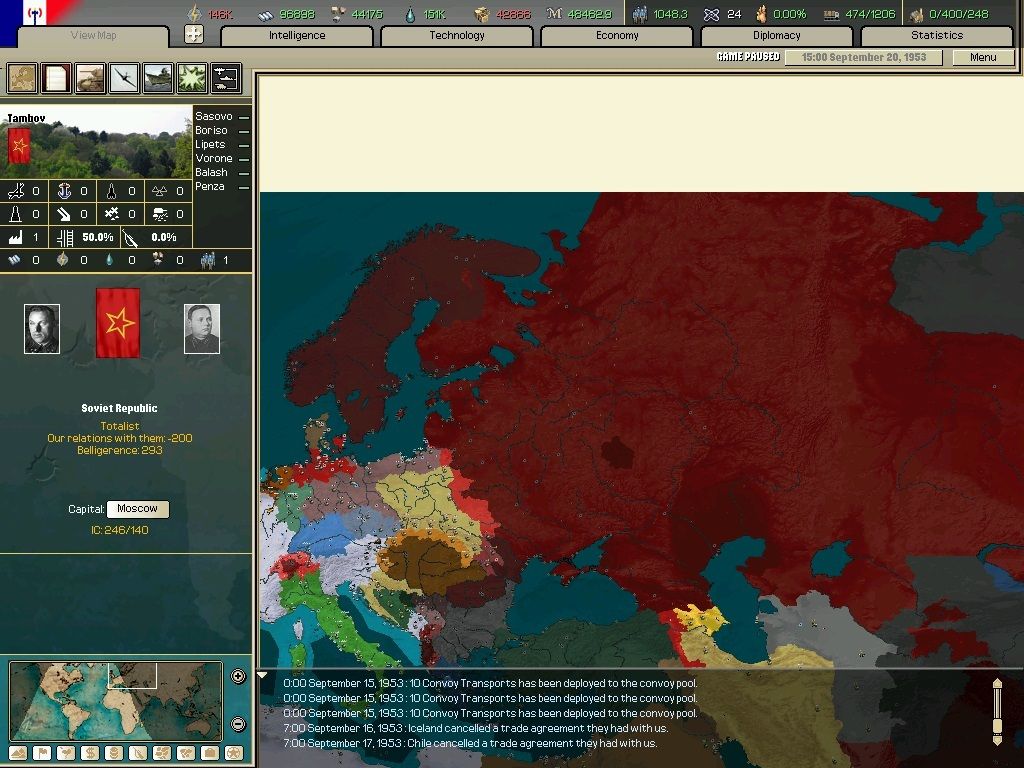
The Soviet war effort was also being helped by the integration of Ukraine into the Soviet system, allowing occupation garrisons to be reduced in favour of making greater use of locally recruited and ideologically reliable police forces. Furthermore, the addition of Ukraine’s industry had increased the manufacturing capability of the Soviet Republic to a level that was higher than that of all the nations of the Canadian-led alliance combined. As the war went on, this allowed the Soviets to slowly increase the size of the Red Army to 100 infantry divisions and twenty armoured divisions, on top of replacing losses, while the armies of their enemies were gradually being worn down.
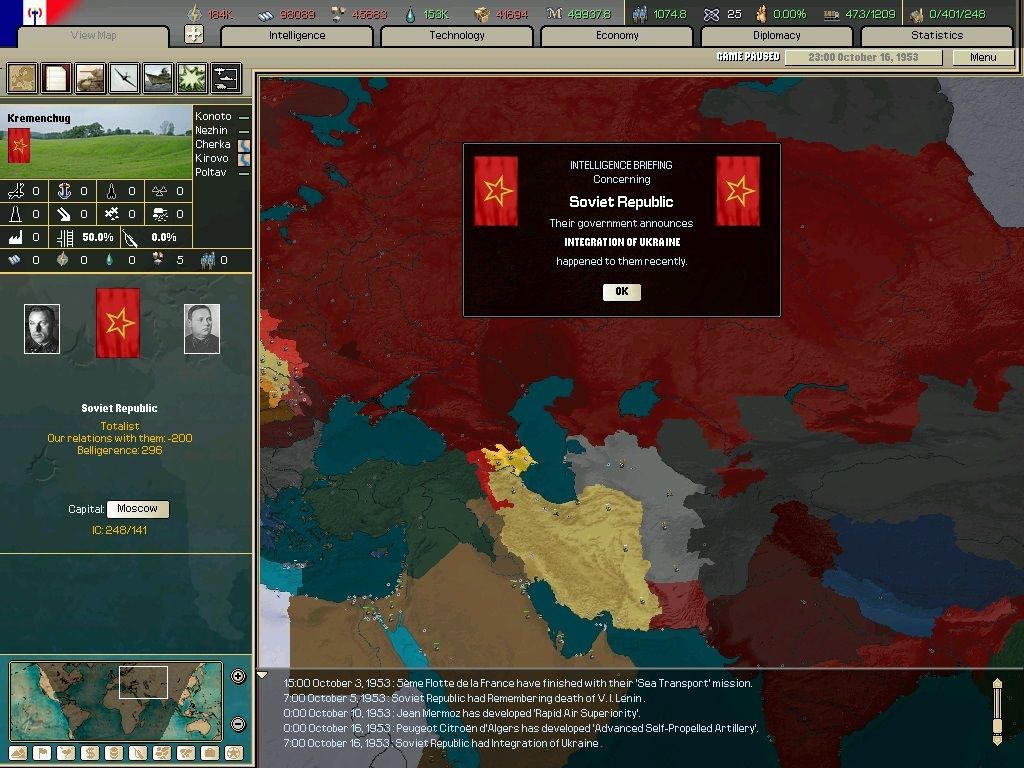
By the time 1954 rolled around the Red Army clearly had the upper hand with the frontlines deep inside Mongolian Siberia, despite its failure to make any significant progress south into Afghanistan, and the frontlines in Finland largely stalled with neither side able to make significant gains. The number of deaths caused by the Soviet phase of the Third Weltkrieg at this point are estimated to be at least five million.
